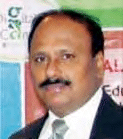
Enormous funds are required to provide scholarships, soft loans or to building skill-based education models, assert AICTE Chairman Prof SS Mantha
The economic progress of a country is strongly linked with quality education with values for all. It is therefore, necessary for our higher education systems to undertake periodic review of the curriculum and subject content of the technical programmes to ensure that they are up to date, not outmoded or obsolete, and effectively fulfill the technological requirements of the country.
Research is important too, to enhance quality in teaching learning processes and eventual meaningful employment. However, quality comes at a price.
When statistics read that 40 percent of India’s school going population is trying to register in private schools that are seven percent of the total and only 18 percent of the youth are able to enroll for higher education, a mismatch in demand-supply ratio for quality education becomes glaringly obvious and a lot needs to be done in this domain.
An education system where more than 50 percent fail between X, XI and XII standards of schooling, we need to analyse the problems. A study indicates that those who fail and eventually drop out have to make ends meet and hence work, or a majority finding the current education not interesting enough.
Either way, enormous funds are required to provide finances like scholarships, soft loans or even change the current predicament to building skill-based education models.
Higher education, in general, and technical education in particular, in India, contributes a major share to the overall education system and plays a vital role in the social and economic development of our nation.
In India, technical education is imparted at various levels such as: craftsmanship, diploma, degree, post-graduate and research in specialised fields, catering to various aspects of technological evelopment and economic progress.
A truly massive education system such as ours is highly stressed and needs funds to sustain and grow. Higher education institutes and universities are starved for funds today. So private investment is needed urgently, but one cannot neglect the mechanisms through which public subsidies are allocated to the universities.
One cannot expect the solution for higher education’s problems to come only from increased student (or graduate) contributions. The mechanisms for public funding contain important incentives to achieve higher education’s three main goals, viz. quality, efficiency and equity.
Bringing these incentives more closely in line with incentives to generate increased private resources for higher education would seem to be the goal to be achieved.
It is not just the level of public and private funding, but it is just as much the basis and criteria according to which public funds are made available that can improve the quality and accessibility of higher education.
During the financial year 2011-12, the Centre allocated `38,957 crore for the Department of School Education and Literacy, the main department dealing with primary education in India. Within this allocation, a major share of `21,000 crore is for the flagship programme ‘Sarva Siksha Abhiyan’.
A high allocation is required to implement the recent legislation Right of Children to Free and Compulsory Education Act, 2009. It is a great idea to progressively increase expenditure on education to around six percent of the GDP but such an effort probably also leads to an imposition of an education cess.
There is no optimal funding model that one can use. Goals to be achieved and the model of higher education system that we would like to promote needs to be matched. We need to optimise the public funding the development of research, quality of education and, lastly the access to education.
Some of the concerns here are the degree of autonomy of individual institutions in their functioning and budgeting versus the direct control of the state, the relative contribution of the state and of the students to the funding of higher education and the relative importance of the educational and research mission versus. the model with research-intensive institutions alongside teaching-only institutions.
We have several desired characteristics and outcomes for state higher education funding models, which include equity, adequacy, stability, and flexibility.
Creating endowments and corpus need to be explored. An endowment is a way for a donor to make a statement, honor a friend or loved one, or to recognise an organisation. An endowment is significant in that it provides financial support for the university and, at the same time, it becomes a permanent resource within the institution.
We also need to look at new models like non-profit organisations transferring assets to the university foundation to create a permanent endowment fund. Other donors also can make contributions directly to the fund. The university becomes the fund’s sole beneficiary.
Advantage of having an endowment is obviously financial stability and oversight where an endowment provides a steady income stream for the university to offset operations, fund risk ventures like new or innovative programs, tuition assistance, etc.
It is a good idea to even create an operating reserve like a designated fund which may act like an endowment because a university may choose not to touch the principal. Principal, however, will be available to meet emergency needs.
Institutions need to realise that there would be no free boarding anymore and need to make the internal systems count to create realistic funding models. Public funding and state funding would always be in short supply.
Hence, a pragmatic approach would be to source alternate funding methods like optimising resource allocations, conduct new programs, promote hybrid learning methodologies to reduce cost of education, invest in research for returns on quality, and invest in publishing.
Hence, we need to encourage augmentation of resources for covering a larger portion of cost of higher education. The government would certainly look to provide higher resources moving from higher to primary level of education and with good reason.
RTE is singularly a very important piece of legislation and would need funds. This, however, cannot be at the cost of subsidising higher education and a possible full cost recovery from students. Cost recovery cannot and should not be through student fees but necessarily be through other means as enumerated above.
We need a finance corporation set up with public and private funds to create a corpus that has the potential to fund a large population who otherwise cannot fund their education. This is all the more important when we consider that 65 percent of our population would be below the age of 35 years in the next 20 years.
We also need almost double the institutions we have today to accommodate the aspirations of a young population. Where would the funding come from? Like the Hon’ble Minister, HRD Shri Kapil Sibal said, the present loan structure of the government was not conducive for either student taking loan or bank offering loans.
“We need to actually liberalise the whole structure.” A bold thought indeed. In this context, he had suggested that financial institutes should have a flexible lending policy when extending loans for setting up educational institutes. In fact, the banks must be asked to give long-term loan to educational institution paid over period of 20 to 25 years.
To set up an education institution, nobody is going to borrow at 12 percent or16 percent and set up an institution where the time to return the loan over period of seven years is neither really workable nor practical.
Finally, great resilience in this country would see the hurdles pass and see good economic sense would prevail in days, months and years to come, for no country has ever had to regret its spending on education.
Indeed, like Aristotle said, “All who have meditated on the art of governing mankind have been convinced that the fate of empires depend on the education of youth”.










 As per the memorandum of understanding (MoU) signed between the Vedanta Foundation and the Odisha government , the foundation will provide hardware as well as software solutions like light?emitting diode (LED) Pico projectors with memory and battery backup and textbook?based educational software and e?Content based on course curriculum in the local language (Odia).
As per the memorandum of understanding (MoU) signed between the Vedanta Foundation and the Odisha government , the foundation will provide hardware as well as software solutions like light?emitting diode (LED) Pico projectors with memory and battery backup and textbook?based educational software and e?Content based on course curriculum in the local language (Odia).



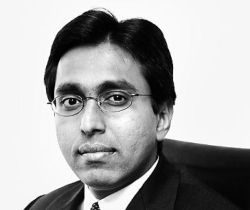



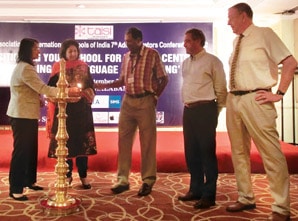
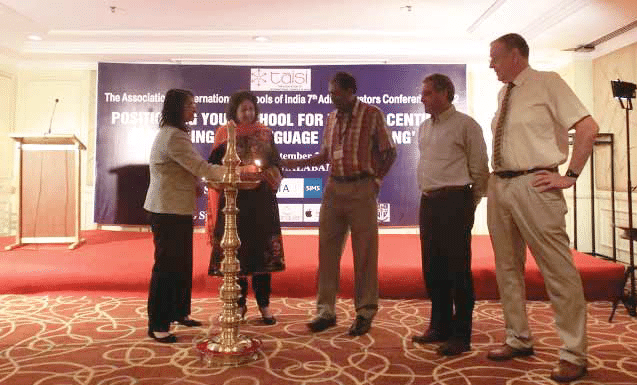 The TAISI Teachers and Administrators’ Conference was held at Vivanta Taj at Cochin from September 26-30, 2012. The event was organised by the Association of International Schools in India (TAISI), a nonprofit autonomous body.
The TAISI Teachers and Administrators’ Conference was held at Vivanta Taj at Cochin from September 26-30, 2012. The event was organised by the Association of International Schools in India (TAISI), a nonprofit autonomous body.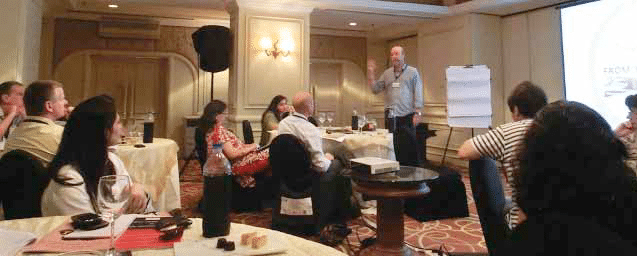 The fourth day had some interesting sessions by leading educationists like Dr Pascal Chazot, Director, Mahatma Gandhi International School, Ahmedabad, who gave a presentation on the various experimental learning carried out in the Mahatma Gandhi School and also showcased the various innovative classroom pedagogies used there. Another interesting session was by James MacDonald, Head of School, Yokohama International School, Japan, who introduced the theory called the ‘Triple Bottom Line’. This theory helps the schools to think about their functioning and aims to provide a way of thinking about the schools priorities and measuring success. He also held a breakout session on the looking at the various ways by which schools can differentiate itself to reduce unhealthy competition between schools and provide better education to meet the needs of the children individually. A young Graduate of MIT and Founder, Camp K-12, Anshul Bhagi talked about the various ways of getting young school students addicted to innovation. He discussed how early exposure to hands-on experiences can be important for moulding the children. He showcased how educational tools from MIT could be implemented in schools to help children build their own apps for computers and phones. Lakita Jaggi, Primary Teacher; Gifted and Talented Co-coordinator Primary, The British School, New Delhi, who had some interesting ideas to share about the various ways of handling and identifying the high achievers and gifted children in the classrooms and how to help these children by increasing the challenges in the classroom for them. Melanie Kells, Dean of Studies, Canadian International School, Bangalore, and Apple Distinguished Educator (ADE) and Apple Professional Development (APD) Trainer, held various hands on sessions on the latest apps, interactive textbooks, and research tools designed by Apple on education.
The fourth day had some interesting sessions by leading educationists like Dr Pascal Chazot, Director, Mahatma Gandhi International School, Ahmedabad, who gave a presentation on the various experimental learning carried out in the Mahatma Gandhi School and also showcased the various innovative classroom pedagogies used there. Another interesting session was by James MacDonald, Head of School, Yokohama International School, Japan, who introduced the theory called the ‘Triple Bottom Line’. This theory helps the schools to think about their functioning and aims to provide a way of thinking about the schools priorities and measuring success. He also held a breakout session on the looking at the various ways by which schools can differentiate itself to reduce unhealthy competition between schools and provide better education to meet the needs of the children individually. A young Graduate of MIT and Founder, Camp K-12, Anshul Bhagi talked about the various ways of getting young school students addicted to innovation. He discussed how early exposure to hands-on experiences can be important for moulding the children. He showcased how educational tools from MIT could be implemented in schools to help children build their own apps for computers and phones. Lakita Jaggi, Primary Teacher; Gifted and Talented Co-coordinator Primary, The British School, New Delhi, who had some interesting ideas to share about the various ways of handling and identifying the high achievers and gifted children in the classrooms and how to help these children by increasing the challenges in the classroom for them. Melanie Kells, Dean of Studies, Canadian International School, Bangalore, and Apple Distinguished Educator (ADE) and Apple Professional Development (APD) Trainer, held various hands on sessions on the latest apps, interactive textbooks, and research tools designed by Apple on education.


 A visionary leadership and a passionate team continuously drive the innovation and excellence in the design and delivery of solutions and services. The company operates under the powerful umbrella brand of “Digital Campus” touching millions of students, parents,
A visionary leadership and a passionate team continuously drive the innovation and excellence in the design and delivery of solutions and services. The company operates under the powerful umbrella brand of “Digital Campus” touching millions of students, parents,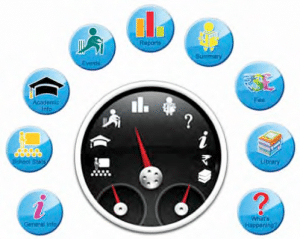 ERP on Cloud and Digital Dashboard
ERP on Cloud and Digital Dashboard

